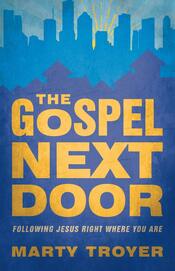 At Lebanon County Christian Ministries, our mission is to share the love of Jesus by providing emergency food, clothing, shelter, and guidance toward personal sustainability to anyone in need. We also believe that a community that learns together, grows together. That's why we are excited to invite you to join Lebanon County Christian Ministries' new book discussion group! We will kick off this new endeavor with 'The Gospel Next Door' by Marty Troyer. Here's everything you need to know: We have 10 slots available for this group and we intend to meet weekly. We have not set a start date yet, but we are looking at starting sometime in May. Once we know who signs up for the group, we will then contact the group to provide options for a meeting time that will work for the majority of people each week. After we select a date, and you are confident that date works for you, we would urge you to order the book. If you need financial assistance, please contact Andrea at [email protected]. If you're interested in signing up, please click the link below, then click on 'sign up' and then 'submit.' We will be in touch once the group is filled. The link to purchase the book is also below. Sign up Book Discussion group sign up link (ignore the date listed on this form. The sign up form required a date in order to create the link). Again, a start date determined once a group is formed. Where to purchase the book Amazon: Available on Kindle, paperback and hard copy (new and used) Barnes & Noble: Paperback, Nook Book Christianbook.com: Paperback BooksaMillion: Paperback More about the book "As Christians, we pray for God's kingdom to come on earth as it in heaven. But what does that even mean? Would we recognize God's kingdom if it moved in next door? Learn to see God's work in your neighborhood, city, and the world and learn how to join it. With stories from his own city of Houston, Texas, author Marty Troyer introduces a theology of place that empowers us to truly see the work of God where we live, work, and play. The Gospel Next Door unpacks the gospel through the lenses of following Jesus, making peace, and overcoming injustice. Those seeking to connect more deeply with the world that God so loved will find compelling stories and practical ideas for healing brokenness and imagining new life. Start living out the kingdom of God here and now." This is a new venture for us, so we appreciate your grace as we navigate this first foray into the world of book discussion groups! If you have any questions, please contact Andrea Gillhoolley at [email protected]
3 Comments
She was a single mother in the 1980s, so she turned to LCCM for help. Today, she is giving back.3/19/2021 When Sarah was a child, she and her six siblings grew up in a home with no running water.
She remembers having to use an outhouse if she needed to use the bathroom and, to keep warm, she and her siblings would stoke the coal stove that heated the family’s home. As an adult, she found herself struggling financially again after the divorce from her first husband. She was a young mother of three boys and found herself in need of public assistance and unemployment compensation in the late 1980s. Related What does food insecurity look like in Lebanon County? This helped her save for a vehicle - but she had to first obtain a driver’s license. “I learned to drive when I was 36!” she said. With transportation, she could now work to support her boys. “It was tough, but I did it,” she said. “I went to work at Burger King. I would get up early and go. My oldest son was 12, so he watched his two younger brothers.” The money being brought in between assistance, her job and child support just wasn’t enough to cover the basic cost of living, so she turned to Lebanon County Christian Ministries a few times to help provide groceries for her family. “It helped me spread my food bill,” she said. “I used it just a few times, just when I got down…It’s nothing to be ashamed of. Everybody needs a hand up every now and then.” Sarah eventually attended Lebanon County Career and Technology Center in the late 1980s and was featured in local news articles for being the only adult in her class and winning a bronze medal in a cooking competition. She received a degree in culinary arts and became a cook at Cedar Haven, but would go on to switch careers. Sarah went on to make high performance motorcycle tires for Good Year but found her true calling as a certified nursing assistant, and now works at Juniper Village. She and several residents graciously donated to Lebanon County Christian Ministries recently, something she says she was happy to do decades later to help those who find themselves in the same scenario she was in more than 30 years ago. Her advice to people struggling is to accept help. “It’s out there,” she said. “You need to look for it, but don’t be ashamed about it. Just go and get the help because it could end up in more problems if you don’t.” April is National Volunteer Month. We are celebrating our volunteers by telling their stories! Kathy and Ken Wall worked with other volunteers to fill emergency food orders on a January afternoon in the food pantry at Lebanon County Christian Ministries. While the married couple are relatively newer volunteers, they bring 20 years’ experience of adventurous missionary work and dedicated volunteerism to LCCM. And since the beginning, they say God has drawn them toward working in crisis situations and humanitarian aid. So, it was a natural step when they began volunteering at LCCM, a ministry that provides emergency food, clothing and shelter, during the pandemic. Their love of volunteerism and mission work began when Kathy went on a missions trip through their church to Haiti in 2001. Both she and Ken began fundraising each year that she planned to return to Haiti. While living in Manheim, Lancaster County, they held a yard sale, plant sale and bake sale that made over $4,000 in under five hours. While they loved the missions work in Haiti, an opportunity presented itself for the couple to do missions work in Guatemala. “Our church asked if we would be interested. They said, ‘we know you have a heart for Haiti, but would you consider going to Guatemala?” The work would be intense. They would oversee a warehouse for Orphan Resources International for three years, which meant they’d have to sell their home in Manheim. It was a major commitment, but one that they knew had God’s blessing. “We didn’t even have our house on the market and it sold,” Ken said. “It just sold and we didn’t even have it listed! It was just amazing how it all worked out and everything just fell into place.” Their son was just about to graduate high school, so friends offered to take care of him until he graduated so they could move and get trained in Guatamala. After his graduation, their son joined them for two years. A large part of their responsibility was purchasing food, receiving donations that came from the United States, sorting food and finally delivering it to 50 orphanages. But they always knew there was very real danger. “There was a lot of drug cartels and so forth,” Ken said. “We had known other missionary friends there…we knew a few people who were either shot or stabbed or robbed or something of that nature.” There were armed guards at most stores and, as a driver, Ken would have to visit areas with high crime rates. “Our Guatemalan friends would ask us not to go there,” Kathy said. “Our response to them was if we could trust that God would protect us here (United Stats), why wouldn’t he protect us there? We have to believe he will protect us everywhere we go.”
The beauty of Guatemala outweighed fear. They remember stopping at one orphanage and where a teen girl with down syndrome loved swinging, but did not have access to one at the orphanage where she resided. Ken drew up the plans to create a bench swing and enlisted his friends to help pre-cut the pieces. When they arrived at the orphanage, they set the pieces on the ground as they got ready to assemble it. “I had the bench part made and we sat that on the ground,” he said. “She was so excited about this swing that she went over and sat on the bench while it was on the ground.” Kathy added, “There wasn’t a dry eye in the place. It was so beautiful.” The couple eventually moved to Melbourne, Florida after their time in Guatemala ended. Their next mission was yet another God moment, Kathy said. And it all started with a pumpkin sale at their church. It was an unusually hot for autumn in Florida and the church’s pumpkins were starting to rot. Instead of letting the pumpkins go to waste, they instead donated them to a monkey sanctuary. Later, there were pictures of these monkeys eating and playing on the pumpkins hanging on the church wall. As Kathy looked at the pictures, she couldn’t help but notice a flyer for Daily Bread, Inc. a nonprofit that provides emergency food and shelter. She and Ken decided to volunteer in the warehouse. “When we would go to the warehouse, we felt like we were in Guatemala,” they said. “The street wasn’t paved, it was full of potholes. We thought, ‘wow, we’re in Guatemala again!” When they moved back to Pennsylvania, they decided to settle in Lebanon County. They knew they were following God’s calling again when they contacted LCCM. “it just seems like every time we tried to do something, it’s just like God blessed it and I think that really is the lesson in life, for us. Don’t be afraid to do something,” Kathy said. “To set out and do something good. It’s always an adventure.” From health care to food, this mother-daughter volunteer duo at LCCM know how to handle an emergency3/18/2021 April is National Volunteer Month. We want to celebrate our volunteers by telling their stories! In her career in the emergency services field, Dorlee Kreitzer knew how handle an emergency. So when she retired from the Pennsylvania State Police after years as a police communications operator and instructor, she came to Lebanon County Christian Ministries to volunteer her time to serve people who were experiencing a different kind of emergency. A year later, her daughter, Nicole Kreitzer, an EMT with First Aid and Safety Patrol, would join her to help service people in need of emergency food, clothing and shelter. “As an EMT, an emergency is life or death,” Nicole said. “They have a situation happening now that if we don’t fix, it could kill them. Whereas when there’s an emergency here (at LCCM), if we don’t help them it doesn’t mean they will die today, but they could have a long-term issue if we don’t help them today.” As an emergency dispatcher, Dorlee heard her share of heartbreaking pleas for help over the phone for everything from medical emergencies to domestic violence, overdoses and car crashes. Over her long career she served as an EMT, firefighter and dispatcher for Lebanon city and state police, and served as a dispatch instructor. So when she started at LCCM nearly a decade ago, she had one request. “I had spent 26 years listening to people’s problems, and I don’t want to do that anymore,” she recalled telling the volunteer trainer. “I said, I think I want to be put in the warehouse away from people.” But Dorlee said things didn’t work out that way, and God had other plans for bringing her to LCCM. Plans that involved – you guessed it- listening to people’s problems. She started out in the food pantry, where she interacted with guests who came to pick up their emergency food orders. A need opened up for an intake specialist twice a week who would interview guests in need of food and clothing, but staff were having a difficult time finding a volunteer to fill the position. Dorlee offered to do it temporarily until they could find someone else. She turned to Nicole and laughed, saying, “well, that ended up being permanent!” She interviewed people for years and found out about their employment situation, the bills they owed, debt, the relational issues they faced, as well as their health issues, transportation woes and other obstacles. Some problems were out of their control, but others were self made, she said. And she struggled finding the balance between being tough and being loving. After spending her career in emergency services, she said she had become callous – not because she wanted to, but because she had to do the job. “In all fairness to everyone involved in emergency services, you have to have thick skin because to deal with the death, to try to get someone out of a car who is injured, or just helping someone who can’t breath …when someone says ‘please help me’ you have to have thick skin because otherwise you’re not going to make it through,” she said. “So when I came here, I was callous and didn’t want to be – and I think God brought me here to soften my heart. Maybe I was brought here to soften my heart and realize I could still be tough, but no longer callous.” Nicole agrees, and said she and her mother both learned life lessons at LCCM and have grown in their Christian faith thanks to their church and their time volunteering. Nicole said she has learned to not judge people without speaking to them. She gave an example of how a guest showed up with seven children to received emergency food. As it turns out, the woman who came took in a friend’s four children and was temporarily taking care of all these children by herself. “When they came in here the one little girl, she was about 4 years old, they had all this food. Now think about how much food this was. And out of all the food that she was most excited about, she said, ‘there’s milk!’” Nicole said, looking up as if she were talking to God and said “I am so sorry!”
Nicole also said the friendships she has made at LCCM over the years have been crucial to her life. Two years into her time here, she was diagnosed with a benign brain tumor that grew to the size of a golf ball, and staff visited her at home as she recuperated. Since then, Nicole had been able to share her testimony about how she was able to resume a normal life just six weeks after surgery. She has been reminded at LCCM that there are people who may be struggling more, and that no matter where she is, she can share her experience with others. “There are testimonies all around us,” Dorlee chimed in. She gave two examples. Dorlee sat in the waiting room at Hershey Medical Center years ago while Nicole underwent surgery to remove the tumor. An employee could tell Dorlee was distraught, so she tapped her on the shoulder and said she too has a brain tumor, and that it’s inoperable. “And she said ‘but it will be OK.’ It was just one of those things. God gives you testimonies everywhere.” The other example was when a woman came to LCCM for an emergency food order. She told Dorlee that she was diagnosed with cancer and all she wanted to do was go back to work. She had asked if LCCM had any Ensure, a protein drink that was too expensive for the woman to afford. “And for some reason or another,” Dorlee said, ‘we had just gotten an entire case of Ensure that morning…we just piled her up with this Ensure because we don’t give it away to too many people. Those are the kinds of things to me that I think God brought me here for. Just to show me that no matter how hard life gets, there’s always someone who has it a little worse…this is my happy place.” For Christians, Lent is a time of repentance, self-examination, fasting and preparation for the coming of Easter. Lent can also be a time of choosing to focus beyond ourselves and sharing our treasures, time and story with others. We invite you to share your hope and faith in Jesus by sharing your testimony by participating in LCCM's community project called 'Rescue Story.'
Click here to share yours, and then check out Bill's story below. I was raised as a child and baptized at Ebenezer EUB Church. I stopped attending when I was about 11 years old, (my sister and I used to walk from my grandparent's house). I continued reading my bible, provided by my Sunday School, one column per night. I struggled internally with low self-esteem and shyness as a youth and young man. Nobody knew it; everything seemed great on the outside. I met my wife Kathy when I was 18. I had trouble accepting that someone could love me as much as her. I am certain that God put her in my life as part of his plan. I started attending Trinity Lutheran when I became engaged to Kathy. My dad died suddenly when I was 20 years old, which was shortly after our engagement and 7 months before our planned wedding. My family and I had no pastor to turn to, so I called Kathy’s pastor, Rev. Wilson Hoyer, who accompanied me throughout the overnight hours as I painfully notified my grandparents, uncle, and close family friends about my dad’s sudden, unexpected passing. Pastor Hoyer continued supporting my family in the time following. After attending church regularly for about three years and being witnessed to by friends at work, and mentored by church members, I started understanding the meaning of God’s grace. I hit my knees and consciously gave my heart to the Lord when I was 23, married, with one child. My faith continued to grow from there, and opportunities to serve became more visible and important to me. The Lord took my greatest fears and weaknesses, and had me use them for his purposes: in the church, in my career, and throughout all of my life. He always amazes me. At the later stages of my career, as I spent the better part of 10 years working and living out of town, I realized how much I missed serving at my church and serving this community. This tugging at my heart I believe was God’s way of moving me forward on my faith journey. This was one of the major motivators in my decision to retire early. God had blessed me with certain skills and knowledge, and provided the resources for me to move forward and serve His people according to His plan. Favorite Verses: Do not be anxious about anything, but in everything, by prayer and petition, with thanksgiving, present your requests to God. And the peace of God, which transcends all understanding, will guard your hearts and your minds in Christ Jesus. Philippians 4: 6-7 Trust in the Lord with all your heart, and lean not on your own understanding; in all your ways acknowledge Him and He will make your paths straight. Proverbs 3: 5-6 But blessed is the man who trusts in the Lord, whose confidence is in him. He will be like a tree planted by the water that sends out its roots by the stream. It does not fear when heat comes; it’s leaves are always green. It has no worries in a year of drought and never fails to bear fruit. Jeremiah 17:7-8 Prayer Lord forgive us when we get consumed by the things of this world that fight for our love, and our passion. As our eyes are open wide and on you, grant us the privilege of your world view; and may your kingdom be, what wakes us up and lays us down. Artists TobyMac, Matthew West When “Lisa” was a young mother 25 years ago, she relied on Lebanon County Christian Ministries’ free noon meal program to feed her family. She has used LCCM’s services off and on over the years and found herself in need again when she gained temporary guardianship of her three young grandchildren after the sudden passing of the children’s mother in December. “It’s not easy,” she said. Related What does food insecurity look like in Lebanon County? With seven people now living in her small row home, the family has been trying to survive on her husband’s income and daughter’s unemployment. “I used to clean houses, but during the pandemic I was getting less and less,” she said. “Lisa” was in the process of trying to obtain other employment when she suddenly found herself caring for her grandchildren full time.
The family relies on the free noon meal program multiple times a week to ensure everyone has a nutritious, filling meal. Her family is one of many who rely on the free noon meal program each day. Since the 1980s, LCCM has provided a daily meal to anyone in the community who needs one. Prior to the pandemic, LCCM served between 70 to 130 meals daily. Over the last year, LCCM now serves between 160 to over 200 meals daily. In just the last six months, LCCM has served 30,000 meals. In addition to the meal, they also received an emergency food order after falling behind on bills. LCCM’s emergency food order provides families and individuals in need with at least a 2-week supply of groceries for their household. “They gave so much; it’s more than enough and was thinking of giving some to help others out as well,” she said. "What (LCCM) does is just amazing. I’ve lived here all my life. LCCM helps people and needy families.” One year ago, the COVID-19 crisis began and abruptly changed our lives. The pandemic caused many urgent issues ranging from the virus itself and health care to unemployment and schooling. With millions of people out of work, many people also found themselves in need of food assistance – some for the first time in their lives. Prior to the pandemic, food insecurity reached its lowest point in 20 years. But improvements were upended in 2020. In 2019, an estimated 35 million people (1 in 9 people) experienced food insecurity. Feeding America estimates 45 million people (1 in 7 people) in the United States experienced food insecurity in 2020. Related 'It's not easy': Woman raising 3 grandchildren relies on LCCM's noon meal program Projections for 2021 are just as high as 2020 and experts say it will likely take time for food insecurity levels to recover. Here are some things you should about food insecurity in Lebanon County and beyond. What is food insecurity?The United States Department of Agriculture defines food insecurity as the lack of access, at times, to enough food for an active, healthy life for all household members, and limited or uncertain availability of nutritionally adequate foods. Feeding America adds that food-insecure households are not necessarily food insecure all the time, and that food insecurity may reflect a household’s need to make trade-offs between important basic needs, such as housing or medical bills, and purchasing nutritionally adequate foods. Food insecurity is different than hunger. Hunger is defined by the USDA as an individual-level physiological condition that may result from food insecurity. What does food insecurity look like in Lebanon County?Before the COVID-19 crisis began, food insecurity in the US was the lowest it had been in more than 20 years, and yet 35.2 million people, including 10.7 million children, were food insecure. Prior to COVID-19, the food insecurity rate in Lebanon County was 9.1 percent – that’s about 12,480 food-insecure individuals, according to Feeding America. The current crisis is likely to have reversed improvements that occurred over the past decade as more households are experiencing food insecurity issues. Nationally, more than 50 million people, including 17 million children may have experienced food insecurity because of COVID-19. In Lebanon County, Feeding America projects the food insecurity rate at 13.1 percent – an increase of 4 percent. That equates to roughly 18,575 individuals What do families do when they cannot access food? Having consistent access to healthy and affordable food is continually or periodically a challenge for many households. According to the United Way ALICE report, households tend to use three common strategies to cope when they can’t afford food: 1. Cut back on food spending Almost 80 percent of food-insecure families reported purchasing inexpensive, unhealthy food; more than half ate food that was past its expiration date; half purchased food in dented or damaged packages; and 40 percent watered down their food or drinks, according to a United Way ALICE report survey. The consequences of cutting back on spending can lead to poorer health, increased health care spending and limits access to healthy foods. 2. Seek food assistance The first line of defense against food insecurity are federal government food programs followed by food banks and other charitable organizations. More than 1.8 million Pennsylvanians – including 695,405 children - utilize the Supplemental Nutrition Assistance Program, according to the Pennsylvania Department of Human Services. In Lebanon County, there are more than 16,000 recipients of this program, according to 2018 US Census data. While federal programs have proven to be effective at reducing food insecurity and poverty, a vast majority of SNAP benefits run out by the end of the second or third week of every month, leaving households without enough food. This is often when people turn to food banks. Feeding America reports that more than half of their clients (55 percent) were also receiving SNAP benefits. 3.Put aside other needs Sometimes households must make hard choices about what they will pay for each month. As food costs rise, other needs are compromised, including doctor visits and medicine, child care, health, utilities or housing, according to the United Way ALICE report. Other consequences include having less stable housing and less money for savings. How does food insecurity affect adults?When households do not have enough money for food, may buy less food, or less healthy food. The consequences for adults can lead to poor health. Numerous studies have shown that food insecurity in adults is associated with low energy and poor nutrition, as well as specific adverse health outcomes such as coronary heart disease, cancer, stroke, diabetes, hypertension, and osteoporosis, according to the United Way ALICE report. How does food insecurity affect children?Food insecurity can stunt children’s development, affecting their learning and social interaction. They may be at greater risk of anemia and asthma, oral health problems, hospitalization, mental disorders and lower nutrient intakes. At school, children are at increased risk of falling behind their food-secure peers both academically and socially, and may affect grades, non-cognitive skills and lead to behavioral problems. What are the future trends of food insecurity?The United Way ALICE report points to four trends: 1. More young adults are using food pantries. Food pantries have been growing significantly as a resource for people under the age of 25. College students are particularly vulnerable. In response, the number of university-affiliated food pantries rose form four in 2008 to 121 in 2014, and expansion continues across the country. 2. The number of food-insecure seniors (65 and over) is also increasing Due to financial hardship and the aging population, the number of food-insecure seniors more than doubled from 2001 to 2016, to 4.9 million. If this trend continue at the current rate, as it is expected to, there will be more than 8 million food-insecure seniors by 2050. The consequences can be more dire for seniors than for young adults. Seniors can experience chronic health conditions such as depression, asthma, chest pain, limitations in activity and high blood pressure. 3. Public benefits will not be sufficient to eliminate the need for emergency assistance. With changes in the economy, many low-wage workers – even those with public assistance benefits – are now forced to use food pantries on a regular basis. Six months of SNAP benefit use was associated with a 35 percent reduction in emergency food pantry use; however, 13 percent of SNAP recipients still use pantries six months after starting benefits, and more than half - 59 percent of persistent users – those who have relied on food pantries for more than two years – also participated in SNAP. 4.Add to feelings of exclusion. Those experiencing food insecurity may feel excluded and powerless. |
Lebanon County Christian MinistriesArchives
July 2024
Categories |
Call Us:
Email Us:

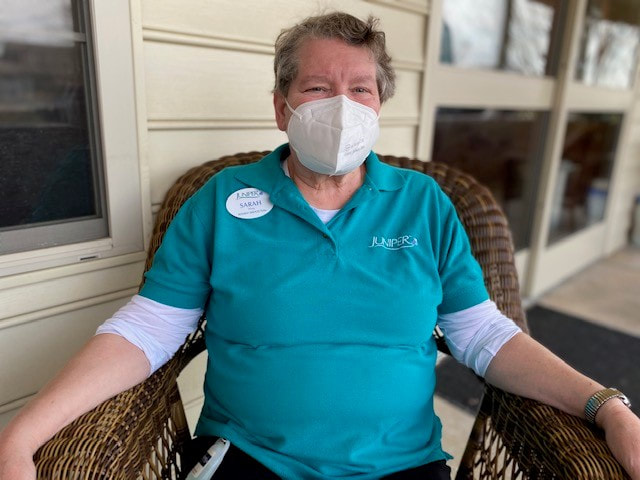
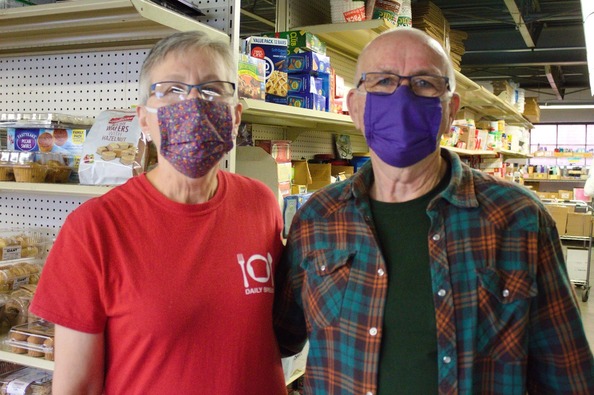
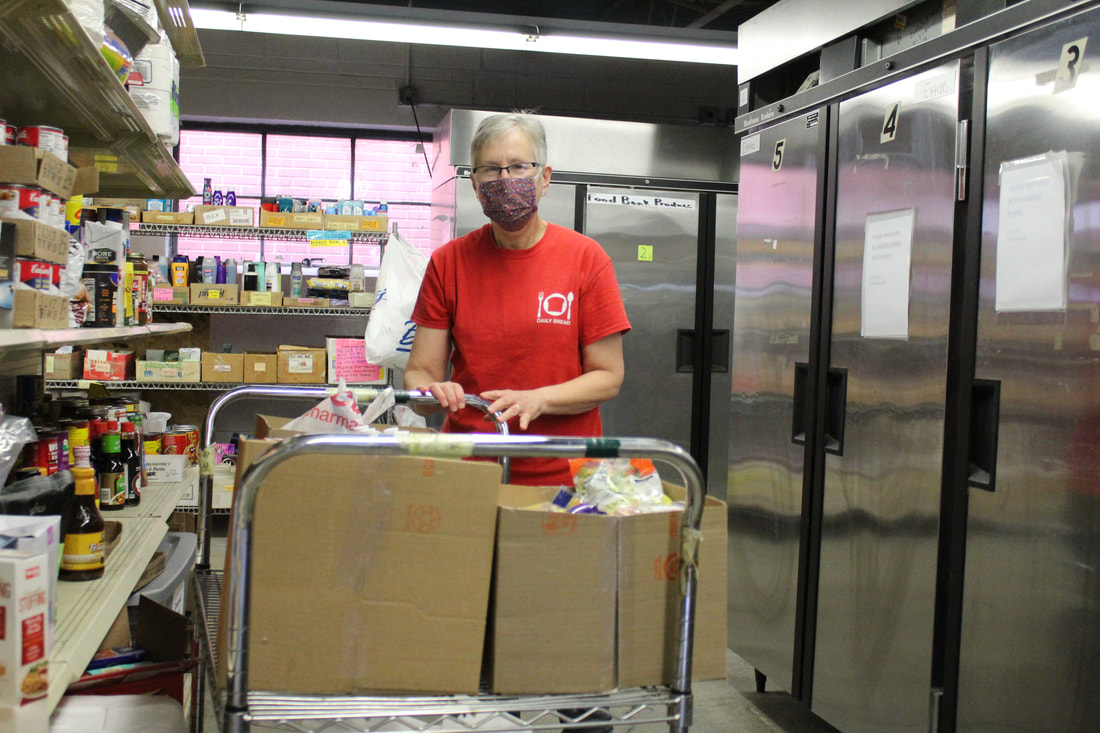
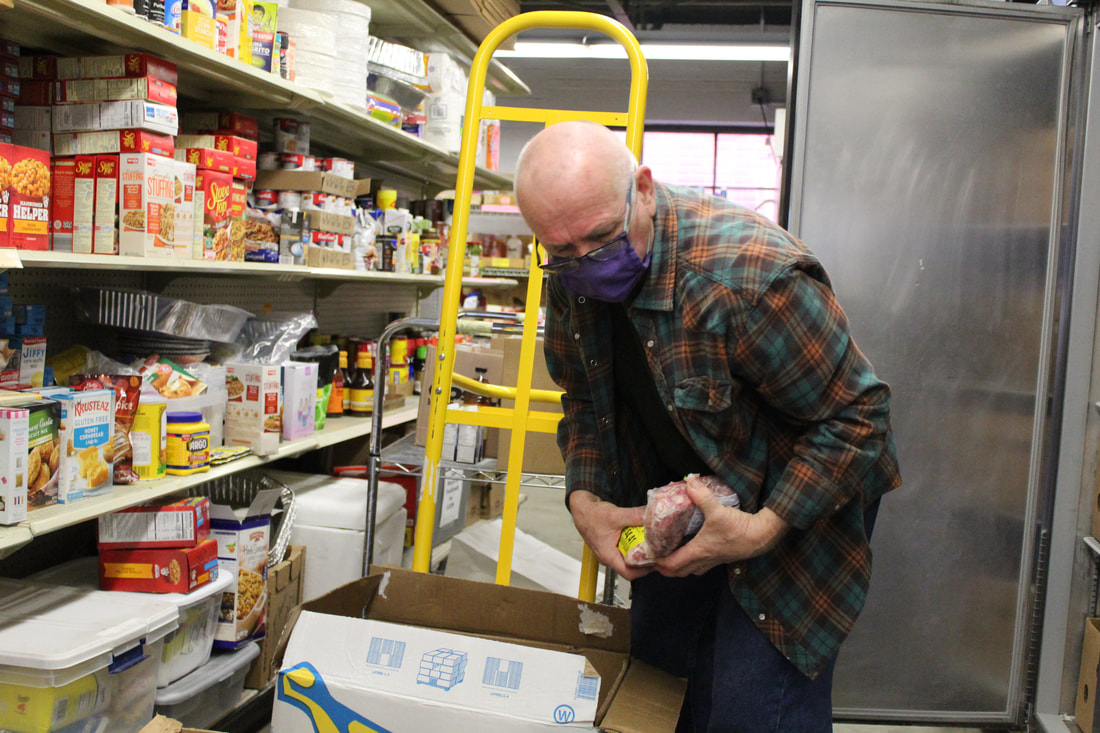
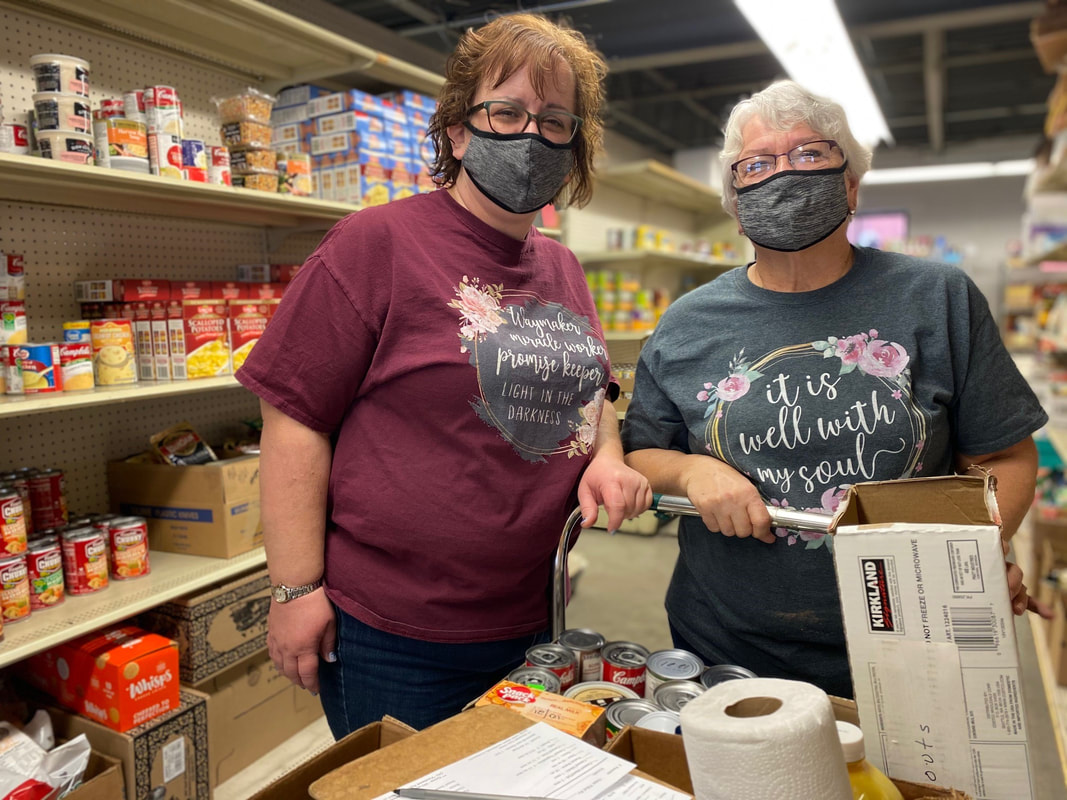
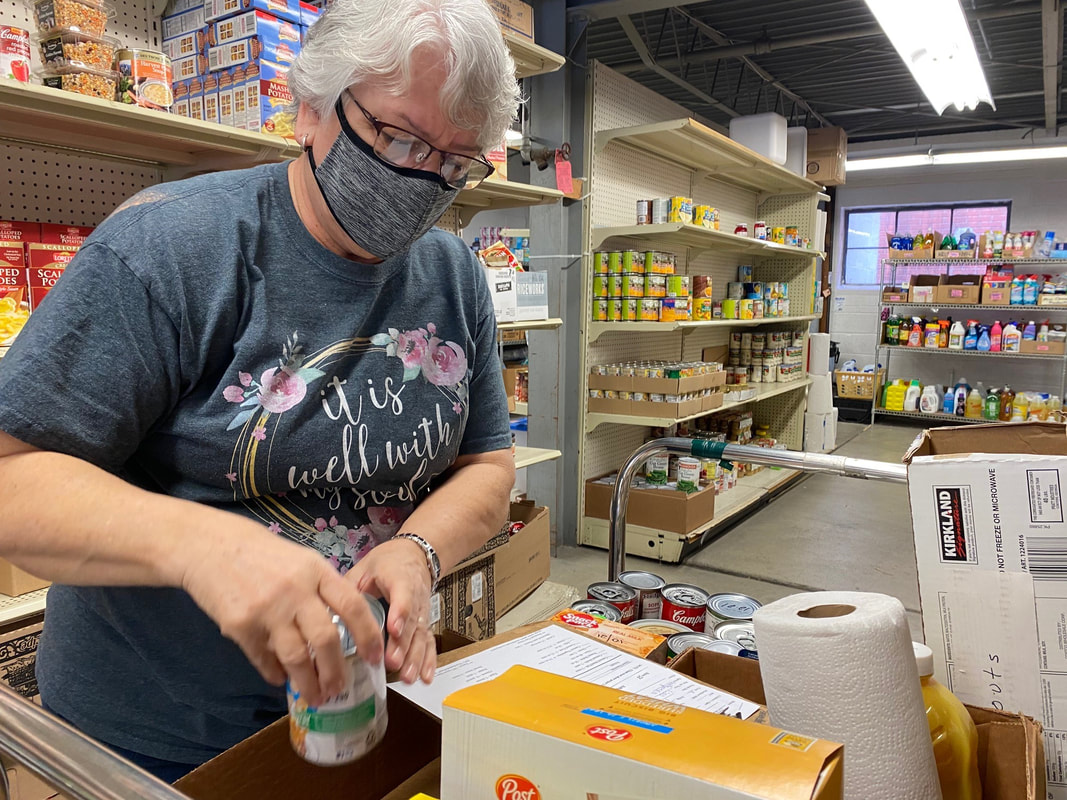
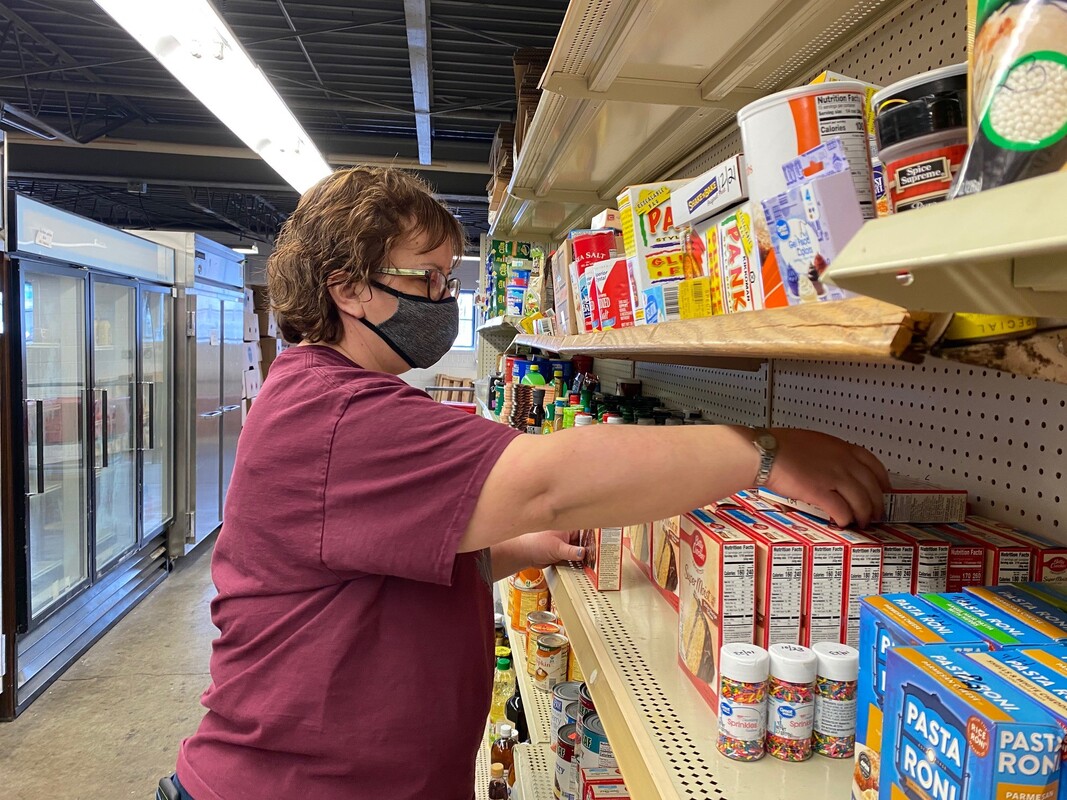
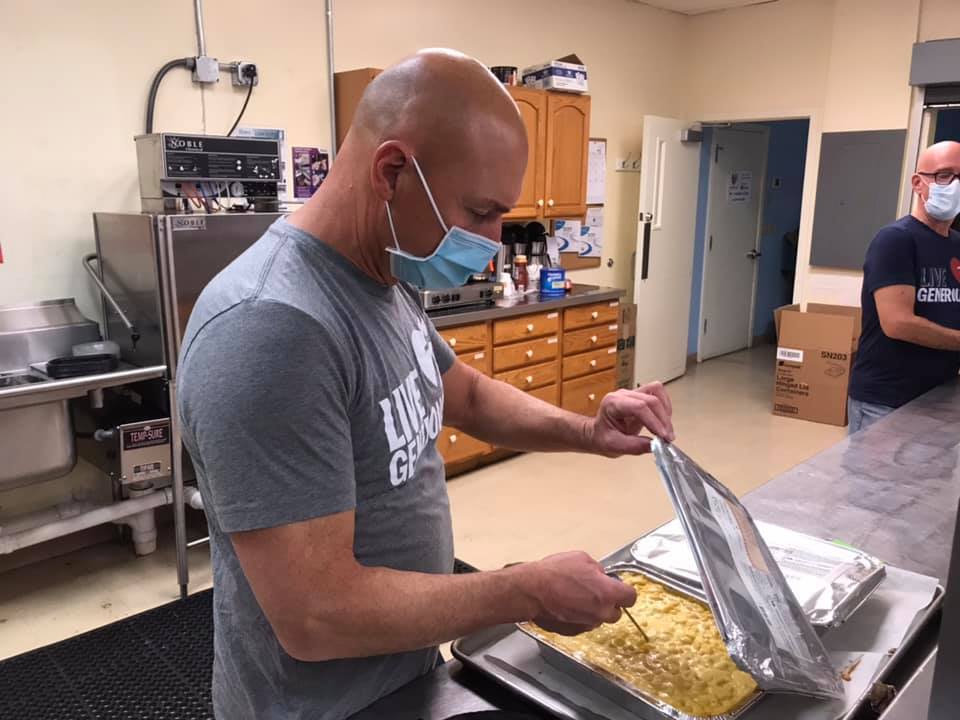
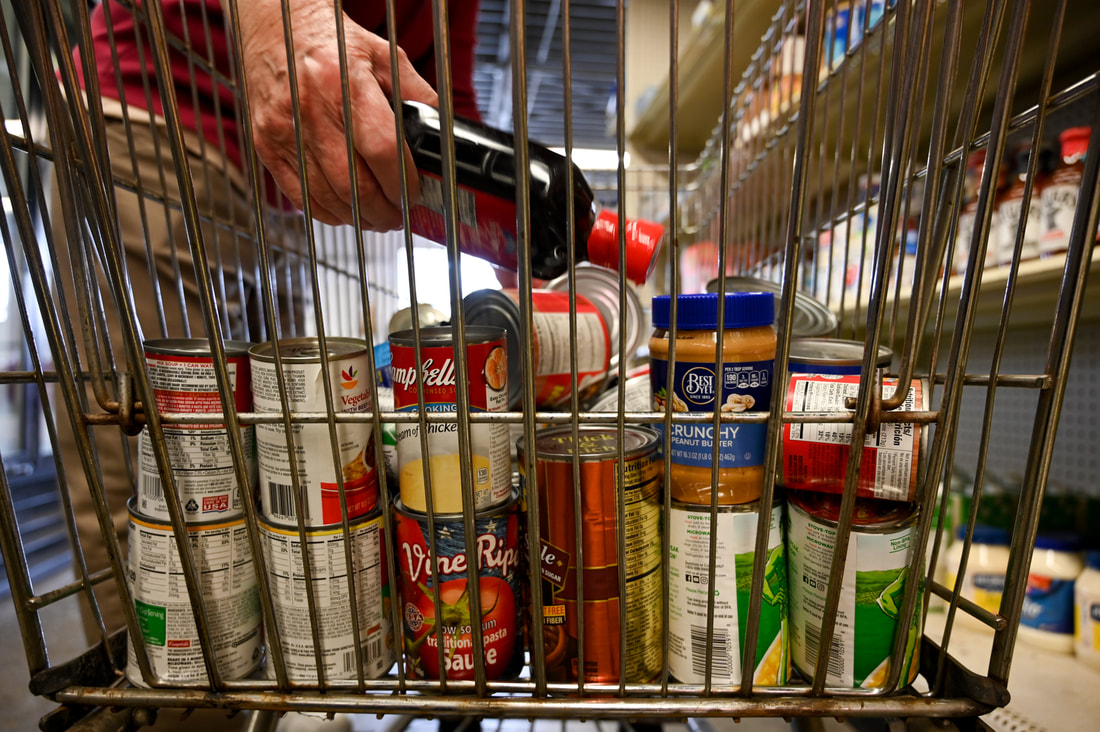
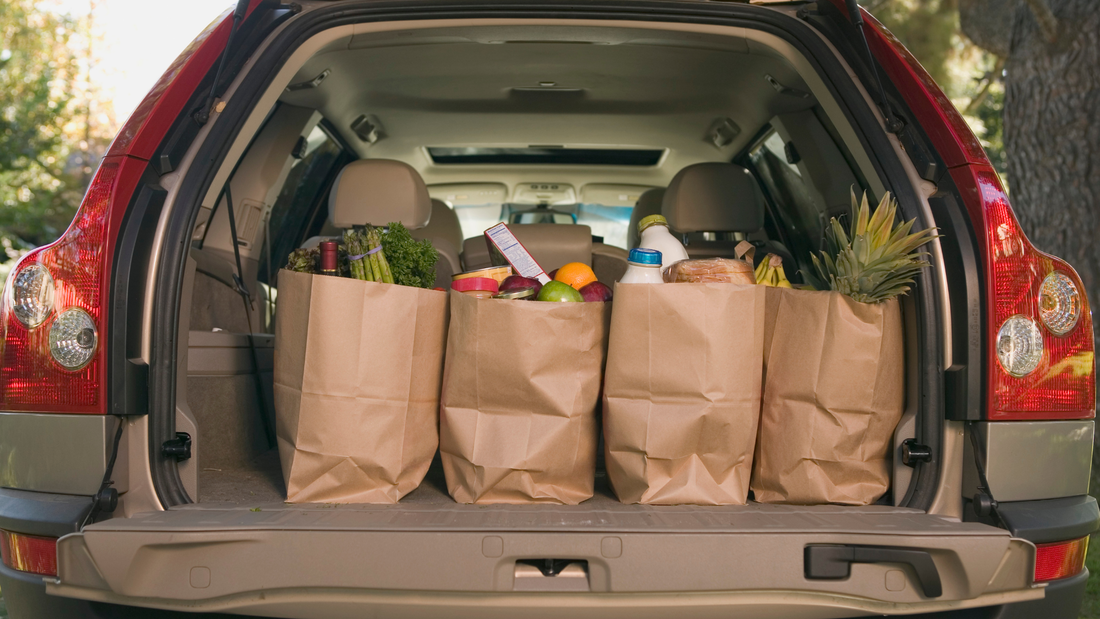

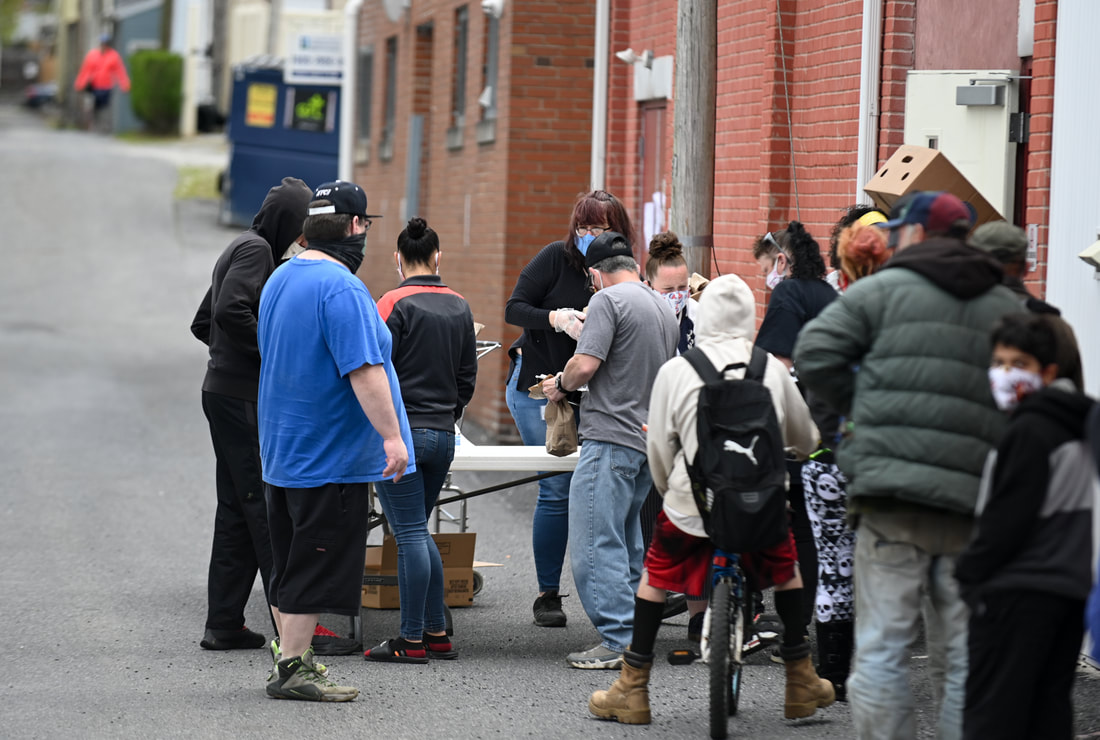
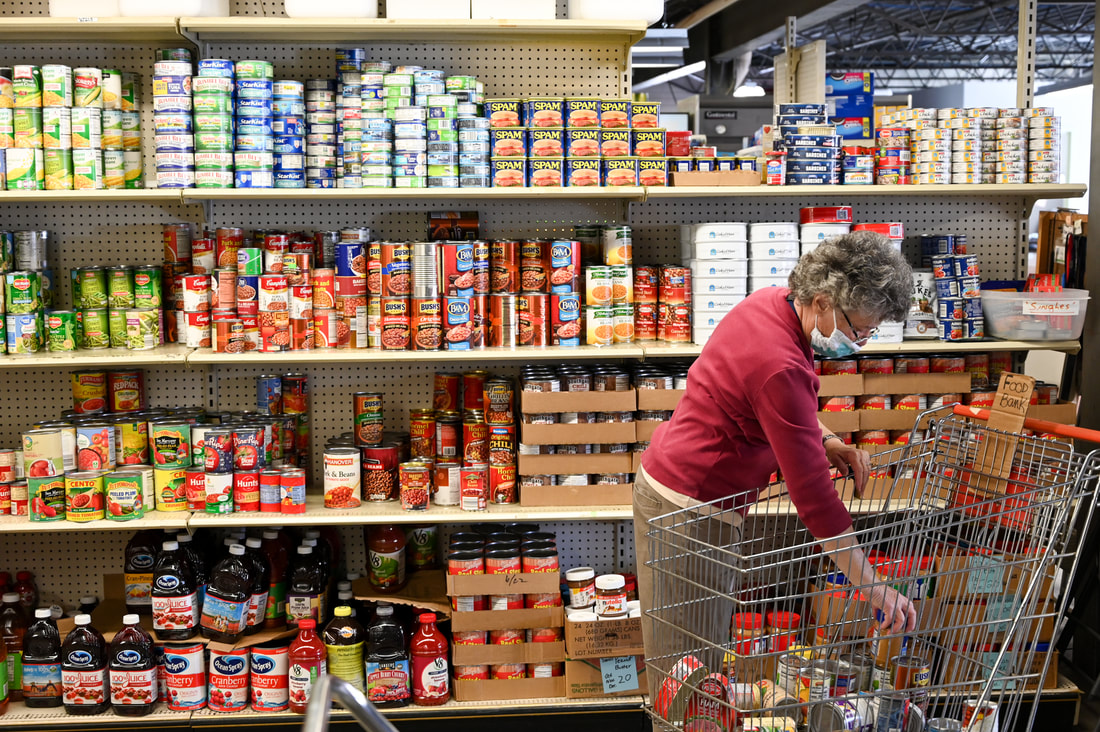

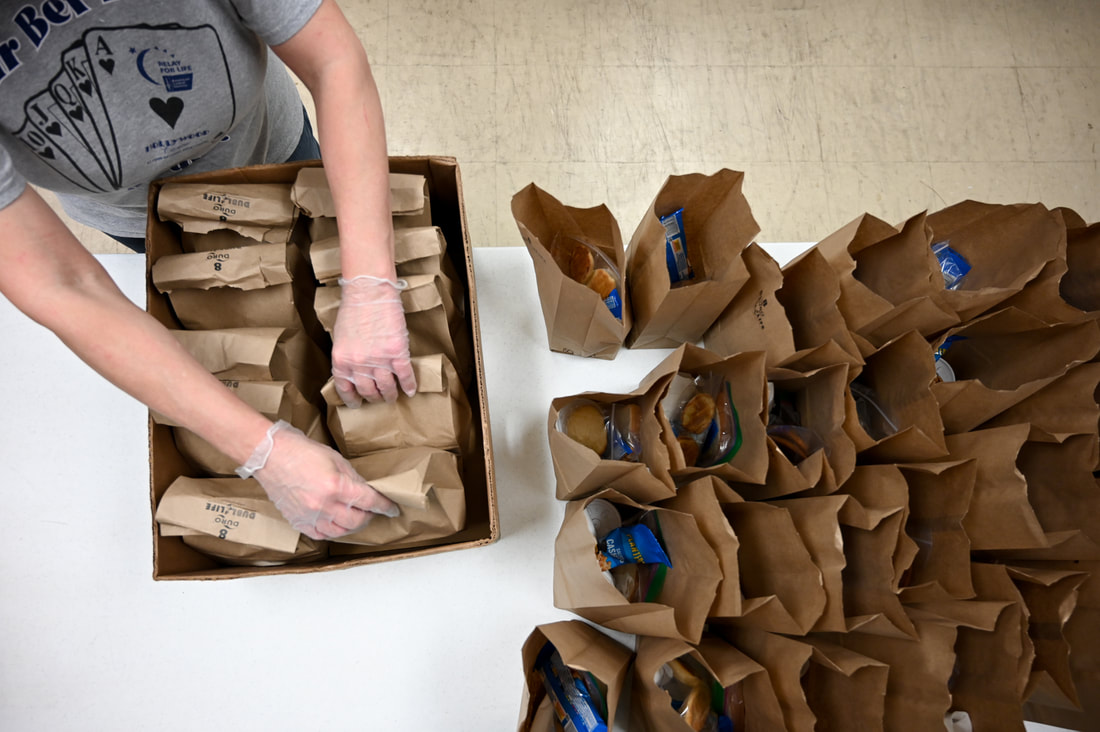
 RSS Feed
RSS Feed